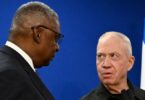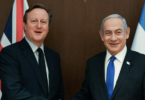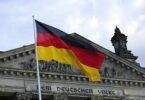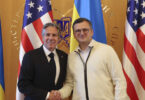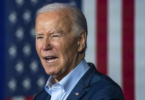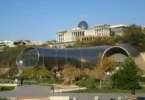BAGHDAD (AFP): Iraqi forces Friday paused operations against the Kurds to allow for talks after clashes over a key border crossing, as Baghdad pushed on with a separate offensive against the Daesh group.
Prime Minister Haider al-Abadi ordered the 24-hour halt as his troops faced off with Kurdish fighters on the second day of a drive to capture the vital oil export point of Fishkhabur on the Turkish frontier.
The freeze should help de-escalate fighting after the two sides – both armed and trained by the US – exchanged heavy artillery fire in the latest flare-up of a crisis sparked by a Kurdish independence vote last month.
But Abadi kept the pressure on the Kurds by saying that the day-long pause was aimed at allowing a joint committee involving officials from Baghdad and the autonomous region “to work on deploying federal forces in all of the disputed zones”.
Iraqi forces on Thursday mounted a new assault on Kurdish fighters in the strategic Zummar area of Nineveh province, tightening the screws after seizing swathes of territory in a lightning advance since mid-October.
After claiming the capture of several villages, the fighting died down earlier Friday as a government source told AFP that Baghdad had given the Kurds an ultimatum to withdraw from the area around Fishkhabur “within several hours”.
To the south, an AFP photographer reported that Iraqi troops had meanwhile retaken the Rabia border post with Syria from the Kurds.
The Kurds insist they have managed to repulse the latest Iraqi advances and have given no indication of being willing to abandon crucial Fishkabur, where rival pipelines belonging to both sides cross into Turkey.
There have been fears the bitter dispute between the Baghdad government and Iraqi Kurdish leaders would hamper the battle against Daesh, with the UN calling for talks on Thursday.
A Kurdish official said the US-led coalition that has backed both the Kurds and the Iraqi forces in the fight against the militants had pushed them towards negotiations.
The bloodless advance by Iraqi forces has seen them reclaim the entire oil-rich province of Kirkuk, stripping the Kurds of a major chunk of their oil revenues and dealing a crippling blow to their hopes of independence.
The latest push on Fishkhabur risked taking them into territory inside the three core provinces that make up the autonomous region of Iraqi Kurdistan.
The area where the borders of Iraq, Turkey and Syria converge is also a key economic hub for US-backed Kurdish forces in Syria, with Iraq alleging it is used to smuggle out fuel.
Baghdad insists it has the right under Iraq´s constitution to control the border and aims to revive a defunct pipeline that runs from the oilfields of Kirkuk to the area of the border crossing to the Turkish port of Ceyhan.
Clashes with Daesh
Despite diverting forces for the push against the Kurds, Baghdad nonetheless on Thursday began an offensive to retake the “last den” of Daesh militants in the country around the town of Al-Qaim in the Euphrates valley on the border with Syria.
An Iraqi general told AFP that troops backed by local Sunni militiamen bombarded Daesh with missiles and mortar fire south of the town on Friday as they tried to press early gains.
Several officers reported that three fighters from Baghdad’s Hashed al-Shaabi irregular force were killed while claiming that some 20 militants also died.
The army released a photograph of a burnt-out vehicle in the barren desert landscape and said that its servicemen had managed to destroy a car suicide bomb before it reached their lines.
Iraqi forces backed by air strikes from a US-led coalition have recaptured 95 per cent of the territory Daesh seized in the country in 2014, dismantling their self-styled caliphate.
Al-Qaim has been renowned as a hotbed of militant insurgency ever since the 2003 US-led invasion. Coalition commanders have dubbed the latest operation “the last big fight” in the campaign against Daesh.
The militants are also battling for survival in adjoining territory they hold in Syria, where competing offensives backed by Russia and the US are looking to drive them back.

